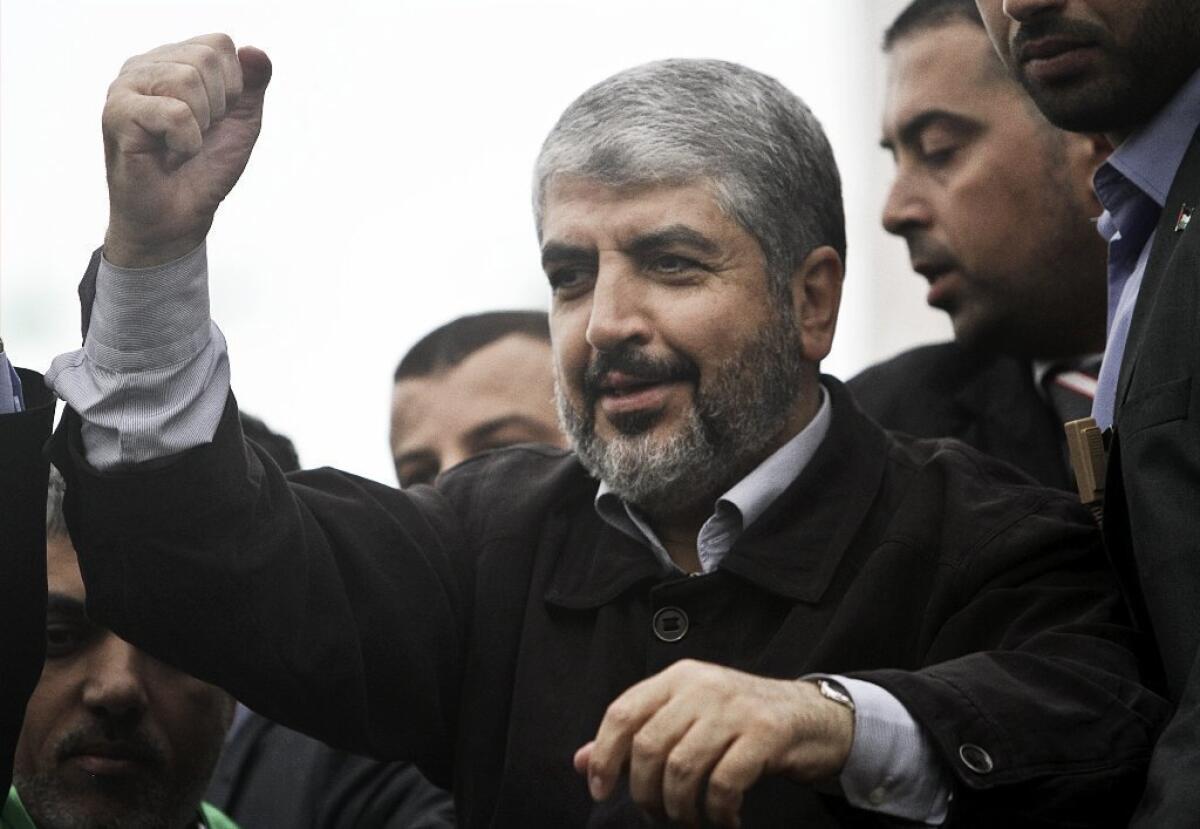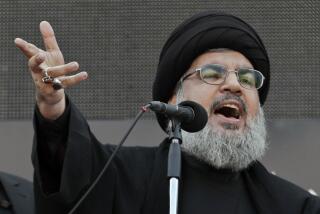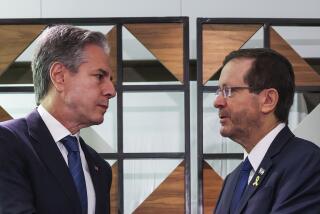Hamas’ hard line

Israeli officials often complain that their country’s policies are lambasted around the world while Palestinians are allowed to behave undemocratically or even violently without comment or moral judgment. So here is a slightly belated but heartfelt criticism of Khaled Meshaal, the top leader of Hamas.
Meshaal made his first trip to the Gaza Strip this month. While there he told a rally of tens of thousands that “Palestine is ours from the river to the sea and from the south to the north. There will be no concession on any inch of the land.” He also said: “Today is Gaza. Tomorrow will be Ramallah and after that Jerusalem, then Haifa and Jaffa.”
In other words, if you were hoping that Hamas might be persuaded to support a two-state solution, taking its lead from liberation movements in Africa, northern Ireland and elsewhere that have given up guns and bombs for negotiations, Meshaal’s message was: Forget it. He, at least, will apparently not be satisfied with a West Bank and Gaza state, and continues to insist that all of Israel, including cities such as Haifa and Jaffa that have large Arab populations but are not part of post-1967 occupation, belongs to the Palestinians.
That’s outrageous, irresponsible and deeply depressing, even from the leader of a well-known terrorist organization. It’s depressing because Hamas is not just a militant fringe group but actually runs Gaza and has significant support among Palestinians. For years, Hamas has been coy about whether it would support a two-state solution; Meshaal was anything but.
Now contrast what Meshaal had to say with the comments of Palestinian Authority President Mahmoud Abbas on Thursday. Abbas said flatly that he did not agree with Meshaal’s refusal to recognize Israel, and reiterated his long-standing support for a two-state solution. Just last month, asked on Israeli television whether he would like to go to Safed, the city in Israel where he was born in 1935, Abbas replied that he would like to visit it but not to live there — because Safed is now part of Israel: “Palestine now for me is the ’67 borders, with East Jerusalem as its capital. This is now and forever.”
Abbas’ statements are so much more rational than Meshaal’s. That’s why he is supported by the United States and most of the world. But the government of Israeli Prime Minister Benjamin Netanyahu has too often lumped Abbas together with Hamas (as it did again after Meshaal’s recent comments). Instead of drawing Abbas close, offering concessions and helping him to distinguish himself from the rejectionists, Israel has often made it more difficult for him to deliver for his people. This, among other things, has left him with little political support.
Current prospects for peace are dim. Negotiations are stalled and the two-state solution has taken a beating. Yet it’s hard to imagine that a resolution to the conflict lies in anything other than honest efforts to improve Palestinian life and good-faith negotiations to create an independent Palestinian state alongside a secure Israel. That requiresrealleadership and courage on all sides.
More to Read
A cure for the common opinion
Get thought-provoking perspectives with our weekly newsletter.
You may occasionally receive promotional content from the Los Angeles Times.










